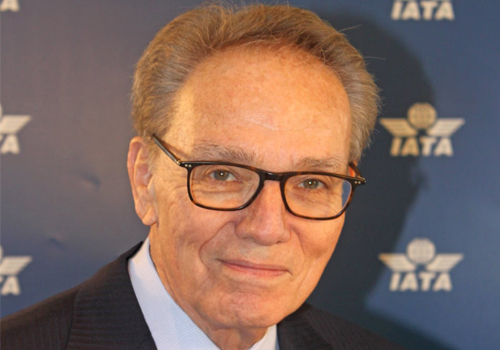Jeffrey Shane became general counsel at IATA in 2013, following several stints in private practice and at the US Department of Transportation. A week ahead of the IATA Legal Symposium in Washington, DC, he spoke to GTDT Aviation Law News about the industry group"™s priorities, regulatory overreach and the global harmonisation of drone rules.
Our priorities cover all of the topics that you would expect, so environment, safety, security and making sure that IATA"™s financial settlement systems are as tight and as efficient as they can be. That is all high on our agenda.
Ultimately, however, the biggest priority for IATA is the success of the industry. It benefits economies everywhere by connecting the world, facilitating trade and tourism, family connections, foreign investment and everything else you can imagine.
To the extent that there are impediments to the industry"™s success in delivering those benefits, our job is to try to address them and minimise the obstacles that our members face.
What impediments need to be overcome?
One impediment is an increasing disposition of regulators to second-guess the design of the very product that our members are delivering. It is all well intentioned and designed to enhance the welfare of consumers, but quite often overreaching by regulators has the very opposite effect. It ends up stifling innovation.
Regulators often try to take a snapshot of the industry at a moment in time, to figure out what can be improved and what can be tweaked to enhance the benefits flowing to consumers from a particular aspect of the business. By doing that they lock the industry into a particular model or practice. That impedes the advancement of technology and innovation, thereby impeding product development and actually reducing competition and consumer benefits.
Distribution is the classic example, where US regulators are almost designing the advertising permitted by airlines. IATA has been working with the industry to overhaul the marketing and distribution of air services through its NDC initiative — the New Distribution Capability. The idea is simply to deliver a retail shopping experience for airline customers comparable to the quality that most online retailers routinely deliver. Marketing through travel agencies today, the airlines can"™t provide the quality and richness of information that consumers need. All they can tell you is where the flight departs from, the destination, the schedule and the price. That is pretty much it.
Airlines, like everyone else in the service business, are interested in product differentiation. They want to compete with each other on the quality of the product "“ but they can"™t display for consumers what that product looks like. Regulators should be interested in this because the implications for competition are profound. That is the whole objective. The US Department of Transportation approved the IATA resolution that launched NDC some time ago, but other proceedings threaten to vitiate the potential benefits of the new approach by being over-prescriptive in the regulation of distribution. By getting in the way of enhancements the industry is trying to deploy, regulators are inadvertently impeding progress. So, that is one big challenge that IATA spends a lot of time working on.
In some cases, governments think that the airline industry should be treated as a cash cow. If somebody has enough money to buy a ticket, [governments often feel that] there is no reason they should not pay another $10, or $20, or $50 to the government to solve whatever social problem the government happens to be focused on. Fees unrelated to aviation violate well established international law principles.
Not every government pays sufficient attention to international law in this particular area, however, so our job is to remind them…



